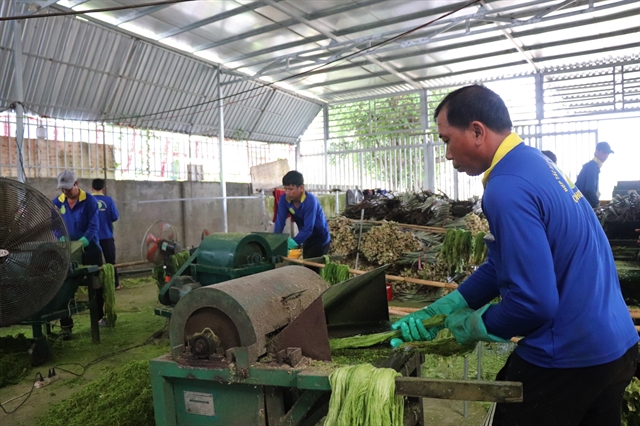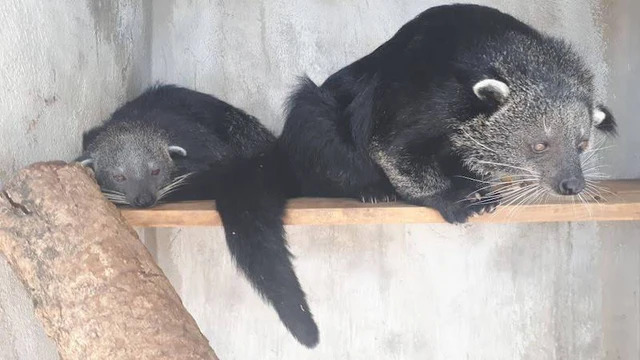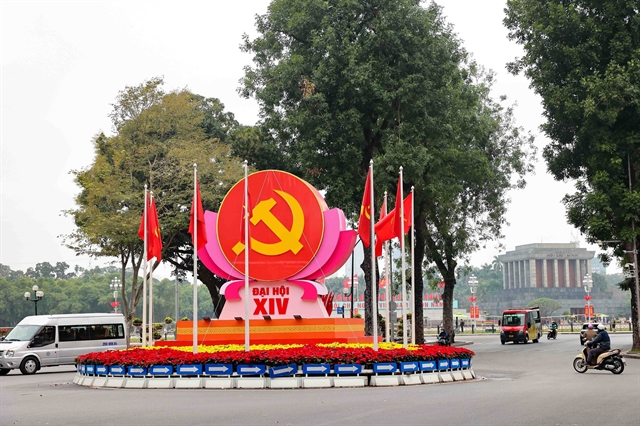 Environment
Environment


|
| Two binturongs that were illegally bred in captivity. — Photo courtesy of ENV |
HÀ NỘI — The non-governmental organisation Education for Nature Vietnam (ENV) has called on the Government to urgently issue a national list of wild species allowed for commercial breeding, warning that gaps in current regulations are being widely exploited to legalise illicit wildlife through licensed farms.
The call comes in the wake of a major court ruling on April 23, in which the People’s Court of Hóc Môn District in HCM City sentenced a man named T.V.T. to ten years and six months in prison for the illegal captivity of endangered wild animals.
The case highlighted how existing licensing loopholes are allowing traffickers to use commercial breeding operations as a cover to legitimise wild-caught animals.
In November 2019, environmental police and local authorities uncovered 57 wild animals at T.V.T.’s registered facility in Xuân Thới Đông Commune, Hóc Môn District.
The animals included clouded leopards, Asiatic golden cats, binturongs, small-clawed otters, yellow-cheeked gibbons and others listed in Việt Nam’s highest protection category.
Although T.V.T. provided inventory documents certified by local forestry units to claim legal origins for the animals, police later found most of this paperwork to be falsified. Some of the animals had reportedly been turned in by the public and handed over by forest rangers, while others were purchased on the open market.
Investigations further revealed that T.V.T. was not only licensed for a facility under his name but also operated several other wildlife farms registered under the identities of other individuals. These facilities had been granted commercial breeding permits for a large number of species, some of which scientists say cannot be bred in captivity for commercial purposes, such as the big-headed turtle.
ENV warns that such cases are not isolated.
According to Deputy Director Bùi Thị Hà, the misuse of registered breeding facilities to legalise wild-caught animals is a widespread and growing problem enabled by regulatory gaps.
Currently, registered commercial farms in Việt Nam are permitted to breed at least 39 globally threatened species. However, ENV says many of the animals in these farms originate from the wild and are simply passed into the legal market.
Hà noted that the practice poses a serious threat to biodiversity, not only within Việt Nam but also throughout the region.
“It is imperative that the Government urgently issues a national list of species that can be legally farmed for commercial purposes. Such a list will provide a clear framework to guide enforcement and ensure that farming activities support conservation rather than undermine it,” she told Sức khoẻ & Đời sống (Health & Life) online newspaper.
ENV argues that the list should be regularly updated and scientifically informed, helping to eliminate ambiguity in enforcement while also supporting sustainable livelihoods for legal breeders.
“A national breeding list will help prevent illegal trade, reduce pressure on wild populations and simplify procedures for both regulators and farm owners,” said Hà.
“In the long term, this must go hand-in-hand with stronger law enforcement and improved wildlife management policies to ensure that commercial farming activities are transparent, accountable and aligned with conservation goals.” — VNS




